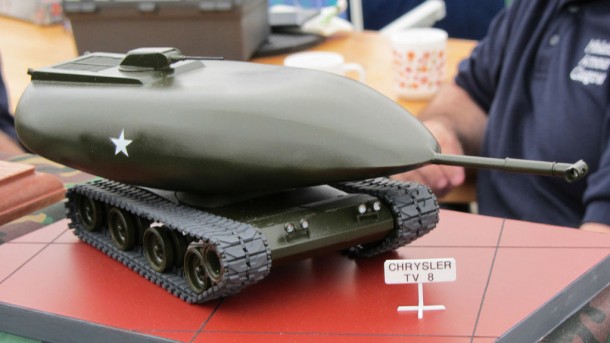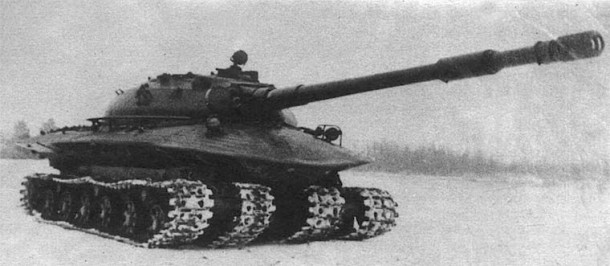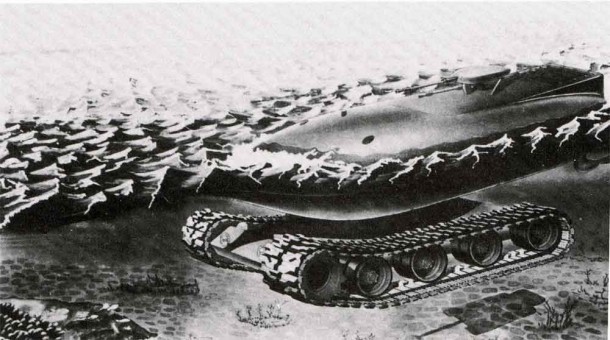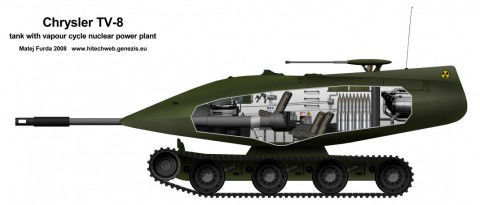Let’s take a trip to the 1950s and check out the experimental concept tank that was designed by Chrysler, Chrysler TV-8. It was designed for the purpose of being a nuclear-powered medium-sized tank that was capable of amphibious and land warfare. The design never went into mass-production. Every equipment, including the engine, was placed into the turret for this design. This was done in order to increase vehicle’s survival rate against any nuclear blast.
It was to be armed with the 90mm gun T208 that would have been mounted rigidly in the turret and would have featured an auto-rammer. Secondary armament constituted of dual coaxial .30 caliber machine guns that would fire through the turret and a .50 caliber machine gun that was located on top of the turret. The 0.50 caliber machine gun was to be remotely controlled by the tank commander. The crew also had access to a closed circuit television that was to protect the crew from the flash of any tactical nuclear weapons.
The phase 1 design of the tank consisted of a Chrysler V-8 engine that was able to deliver 300hp along with an electric generator that was located at the rear of turret. The generator was responsible for powering two electric motors located in the front hull that drove the two 28-inch wide tracks. Later, different methods of powering the vehicle were considered such as using a gas turbine engine drive, nuclear fission powered vapor-cycle power plant and a vapor cycle power plant that was fueled by hydrocarbons.
Essentially speaking, the tank featured a turret within a turret. The inner turret was heavily armored and was surrounded by a lighter exterior shell that imparts the similar to pod appearance to the turret. The tank could, theoretically speaking, be operated by a gunner and a driver, however, the crew size was decided to be four to allow the crew to carry out maintenance tasks instead of sitting and waiting for help to come their way. A jet pump operating from the turret would have allowed it to propel in water.
Further studies proved that this particular design didn’t offer any real advantages as compared to conventional designs and was therefore dropped. But it is still a moonshot project for the era it was conceptualized in!



The third picture is a Soviet design called Object 279.